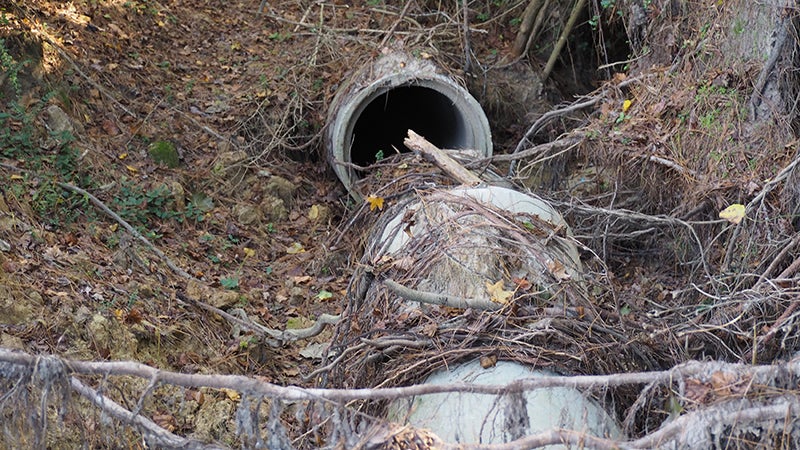Daughter of plaintiff in IW stormwater lawsuit looks to join case
Published 4:38 pm Wednesday, May 31, 2023

- Otis Brock, who died in 2022, had been trying for years to get Isle of Wight County to take responsibility for a pipe that has broken apart in multiple places. (File photo)
The daughter of a deceased Carrollton man whose estate remains embroiled in a lawsuit against Isle of Wight County over a collapsed stormwater pipe is looking to be named a plaintiff in the suit.
Otis Brock, 88, died in 2022. He and his neighbors Brian and Sue Fernaays had filed a federal lawsuit against the county in 2021, alleging Isle of Wight had illegally taken and damaged their land by not repairing the pipe.
Joseph Sherman, the attorney who had been representing Brock and his neighbors, filed a motion on May 19 to substitute Brock’s daughter, Lisa Rhodes, for Brock himself as a plaintiff in the case. According to Sherman’s filing, Rhodes is administering Brock’s estate.
Brock’s “claim is not extinguished” as a result of his death, Sherman writes in the filing.
The collapsed pipe is located in a 20-foot easement spanning 10 feet into Brock’s and the Fernaayses’ yards, and provides stormwater retention and drainage for nearby public roads. Brock and his neighbors had blamed the pipe for the runoff that’s been washing away their land since 2018 and for the resulting sinkhole that’s grown into a 12-foot-deep, 20-foot-wide chasm spanning the property line.
The county argues it doesn’t own the easement and refers to easements that lack clearly defined owners as “orphaned outfalls.” According to Isle of Wight County Circuit Court records, the pipe was installed in the early 1990s, but a specific owner was never designated.
County officials authored a paper in October 2019 titled “Orphaned Outfalls in Rural Virginia Localities,” intending the document for the Virginia Association of Counties. The document argues that while modern regulations now require such easements to be dedicated to a development’s homeowners association, subdivisions built out in the 1990s and earlier frequently lack a stated designee responsible for the stormwater system’s upkeep.
In 2016, Isle of Wight successfully negotiated with the state Department of Environmental Quality to be released from its municipal separate storm sewer system (MS4) permit obligations, arguing it did not own or operate a municipal stormwater system. This allowed the county to cut the stormwater fee it adds to the real estate tax bills of residents and businesses by about 25% — dropping it from $72 to roughly $53 per year for most county residents. If the county were to acknowledge municipal ownership of a stormwater system or agree to maintain or repair privately owned stormwater outfalls, it would run the risk of once again being subject to an MS4 permit – and potentially would need to increase its stormwater fee to cover its repair and maintenance obligations, the “Orphaned Outfalls” paper argues.
No trial date has been set. Dueling motions by the neighbors and the county, each seeking summary judgment in their favor, are pending. On March 31, U.S. District Judge Arenda Wright Allen ordered the county to “file a brief, not to exceed 10 pages” on whether and how Isle of Wight’s alleged “decision to not own or maintain any drainage infrastructure in order to avoid the expense” of an MS4 permit affects the case. Summary judgment allows a judge to rule for either the plaintiff or defendant on the merits of a civil case without the matter ever reaching a jury.





